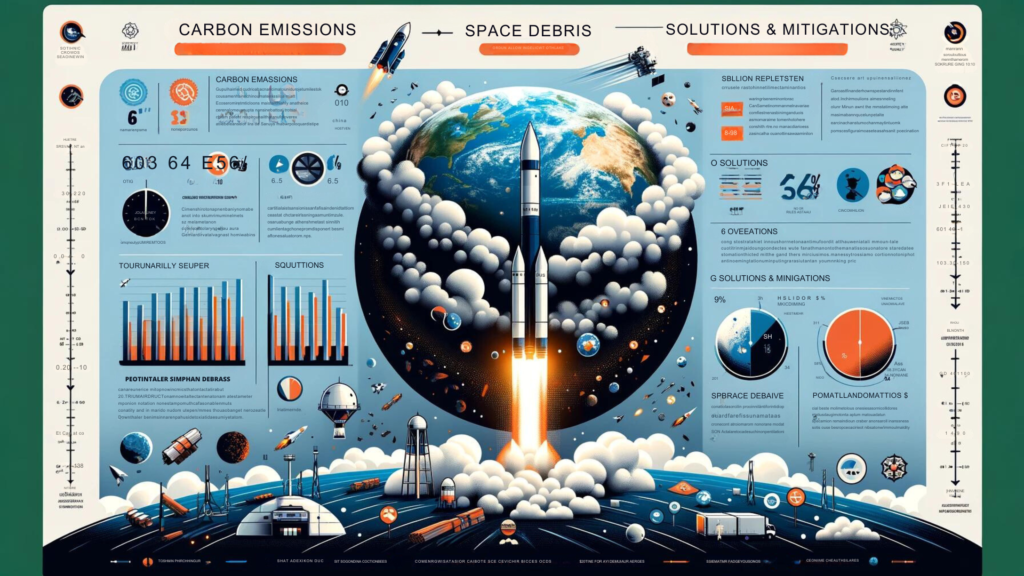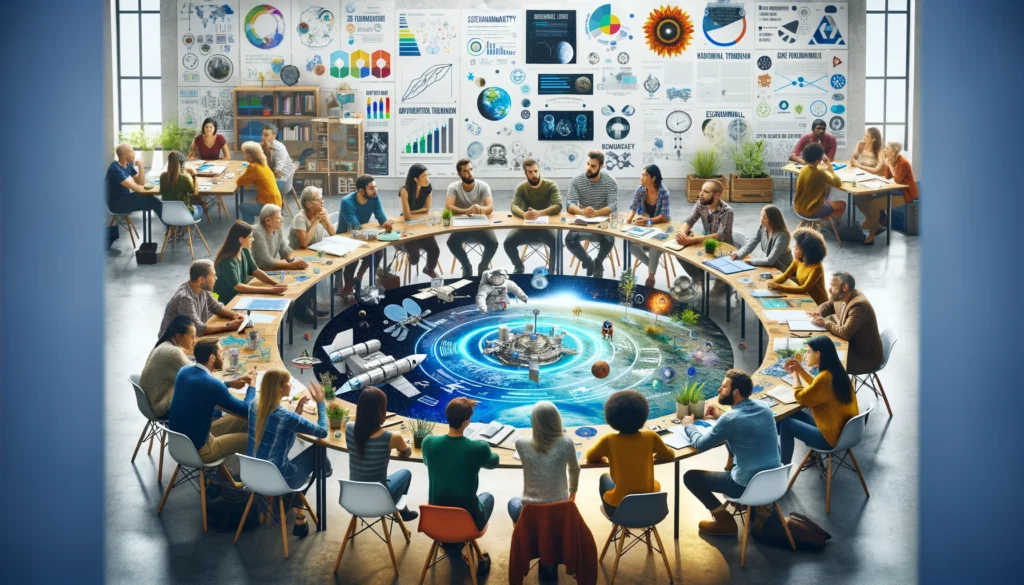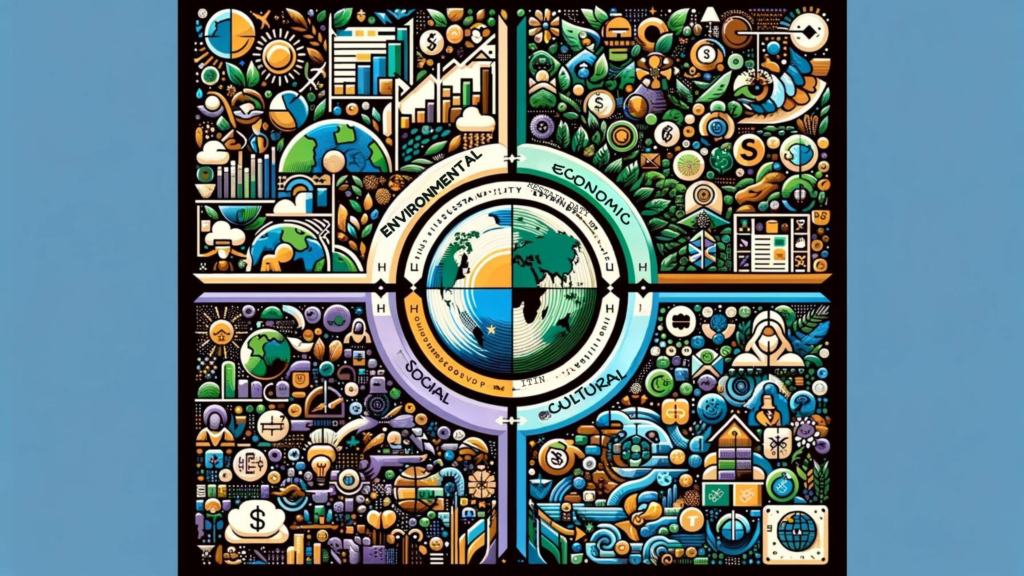Welcome to the first part of our Blog Series – “Space Tourism: Balancing Dreams and Earth’s Future”
The dawn of space tourism marks a significant chapter in human achievement, offering us the keys to the final frontier. Yet, as we stand on the brink of this new era, we’re faced with a critical challenge: aligning our celestial ambitions with the imperative to protect our home planet. This series invites you on a thought-provoking journey through the societal implications of space tourism, exploring the intricate dance between innovation and environmental stewardship.
Sustainability Concerns in Space Tourism
As we reach for the stars, the environmental footprint of our endeavors cannot be overlooked. The act of propelling rockets into space carries with it significant ecological impacts, from the combustion emissions of launches to the potential accumulation of debris in Earth’s orbit. These concerns raise important questions about the long-term viability and ethical considerations of space tourism.

Finnish Perspectives: A Case Study
In Finland, a country known for its beautiful landscapes and commitment to environmental sustainability, researchers have taken a close look at what people think about space tourism and its impact on our planet. The study done by Annette Toivonen (a tourism professional, currently finalizing her PhD in sustainable space tourism) in 2020 brought to light how Finns view this emerging industry through a sustainability lens.
The findings reveal that Finns are not just excited about the idea of traveling to space; they’re also deeply concerned about how these cosmic journeys could affect Earth’s environment. This balanced perspective underscores a broader global conversation about ensuring that our space exploration dreams do not come at the expense of our planet’s health.
![]()
The study identified four main areas that Finns believe are important when it comes to space tourism: the potential for virtual space travel as an eco-friendly alternative, the fairness of investing in space exploration when there are pressing issues on Earth, the need for new technologies to make space travel more sustainable, and the role of government policies in guiding the development of space tourism. These insights from Finland serve as a valuable example of how public opinion can influence the future of space tourism, emphasizing the need for the industry to evolve in harmony with environmental sustainability principles.
 Public Perception and Sustainability
Public Perception and Sustainability
The collective view of space tourism significantly shapes its trajectory. A public that values sustainability can drive companies and policymakers to prioritize eco-friendly innovations and regulations. This dynamic interaction between societal values and the development of space tourism underscores the importance of informed and engaged discourse.
Four Key Dimensions
Toivonen’s research delineates four critical dimensions that are pivotal to understanding and addressing sustainability in space tourism:
- Virtual Travel: This dimension suggests leveraging virtual reality (VR) technologies as an alternative to physical space travel, offering the wonders of space exploration with minimal environmental impact.
- Comparative Fairness: It raises ethical questions about resource allocation, pondering whether the investments in space tourism could be justified amidst pressing global challenges like poverty and climate change.

- Technological Innovations: The focus here is on breakthroughs that could make space travel more sustainable, from propulsion technologies that reduce emissions to systems that minimize space debris.
- Ecopolitics: This encompasses the policies and regulations shaping the development of space tourism, highlighting the need for governance that balances economic ambitions with ecological and social responsibilities.
National Planning and Industry Implications
The insights gained from the Finnish perspective on space tourism offer a compelling blueprint for how nations and the burgeoning space tourism industry can navigate the complex terrain of sustainability. As countries around the world begin to consider their own roles in this new frontier, Finland’s approach highlights the importance of integrating environmental concerns and public opinion into national space tourism strategies.

This means not only fostering innovations that reduce the ecological footprint of space travel but also creating policies that ensure equitable access and minimize the potential for environmental degradation. Such national planning efforts are crucial for setting a global standard that balances the economic and exploratory benefits of space tourism with the imperative to protect our planet for future generations.
On the industry side, the implications are clear: companies venturing into the realm of space tourism, such as SpaceX (a trailblazer in commercial space exploration), Virgin Galactic (a pioneer in spaceflight tourism), and Blue Origin (focused on making space travel accessible), must prioritize sustainability as a core component of their business models. This involves investing in clean propulsion technologies, minimizing orbital debris, and engaging in transparent dialogue with the public about their environmental strategies.
By aligning their operations with the sustainability values articulated by the public, these companies can not only mitigate their environmental impact but also enhance their appeal to a consumer base that is increasingly concerned about the ecological footprint of their adventures beyond Earth’s atmosphere.
What to Expect Next?
In our upcoming posts, we’ll delve into the paradoxes of space tourism, examining the inherent contradictions and challenges of expanding human presence into the cosmos. How can we maintain the awe-inspiring nature of space exploration while adhering to our ethical and environmental duties? Join us as we navigate these complex questions, exploring the future of space tourism through the lens of sustainability, innovation, and societal impact.

Author’s Note
This series, “The Sociology of Space Tourism,” aims to peel back the layers of excitement surrounding space travel to reveal the deeper implications for our planet and society. As we journey through these discussions, we invite you to reflect on the role each of us plays in shaping a future where dreams of space exploration and the reality of Earth’s sustainability can coexist harmoniously.
G.C., Ecosociosphere contributor.
References and Further Reading:





Comments
Thank you for your sharing. I am worried that I lack creative ideas. It is your article that makes me full of hope. Thank you. But, I have a question, can you help me?
Can you be more specific about the content of your article? After reading it, I still have some doubts. Hope you can help me.
I don’t think the title of your article matches the content lol. Just kidding, mainly because I had some doubts after reading the article.
Your point of view caught my eye and was very interesting. Thanks. I have a question for you.
Your article helped me a lot, is there any more related content? Thanks!